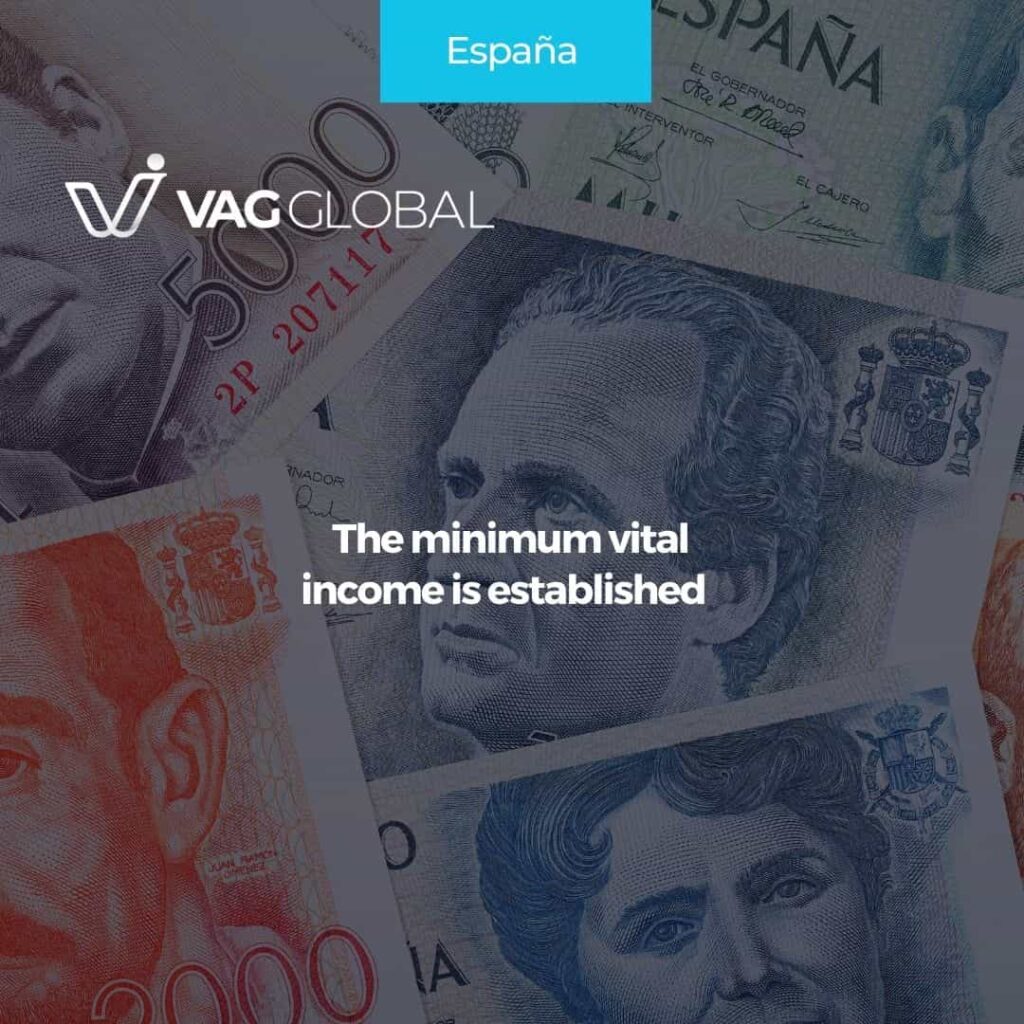Through Law No. 19/2021, the Head of State established the creation and regulation of the minimum living income as a benefit to prevent the risk of poverty and social exclusion of people living alone or integrated into a cohabitation unit when they are in a situation of vulnerability due to lack of sufficient economic resources to cover their basic needs.
1. Definition of Minimum Income
As stated in the regulation, the minimum living income is configured as the subjective right to an economic benefit that guarantees a minimum level of income to those in a situation of economic vulnerability in the terms defined in the Law. The purpose of this instrument is to guarantee the improvement of real opportunities for social and labor inclusion of the beneficiaries.
2. Minimum Income Characteristics
The minimum living income must have the following characteristics;
- It guarantees a minimum level of income by covering the existing difference between the sum of the economic resources of any nature available to the individual beneficiary or, as the case may be, to the members of a cohabitation unit, and the amount of guaranteed income for each case under the terms of article 13.
- It is articulated in its protective action differentiating according to whether it is addressed to an individual beneficiary or a cohabitation unit, in this case, according to its structure and specific characteristics.
- It is a benefit whose duration will be extended for as long as the situation of economic vulnerability persists and the requirements that gave rise to the right to receive it are maintained.
- It is configured as a protection network aimed at enabling the transition from a situation of exclusion to one of participation in society. Its design will include incentives for employment and inclusion, articulated through different cooperation formulas between administrations.
- It is non-transferable. It may not be offered as a guarantee of obligations, nor be the object of total or partial assignment, compensation or discount, withholding or seizure, except in the cases and with the limits provided in Article 44 of the revised text of the General Social Security Law, approved by Royal Legislative Decree 8/2015, of October 30.
3. Beneficiaries
The norm includes within the scope of the benefits of the minimum living income to:
- Persons who are members of a cohabitation unit under the terms established in this Law.
- Persons of at least twenty-three years of age who are not members of a cohabitation unit under the terms established in this Law provided that they are not united to another by marriage or as a domestic partner, except for those who have initiated separation or divorce proceedings or those who are in other circumstances that may be determined by regulation.
It is important to point out that consideration will be given to those persons who are not part of a cohabitation unit, or in the case of beneficiaries who are part of an independent cohabitation unit, those persons who live in the same domicile and are in any of the following situations:
- When a woman, victim of gender violence, has left her usual family home accompanied or not by her children or minors in foster care for adoption or permanent foster care.
- When on the occasion of the beginning of the separation, annulment, or divorce proceedings, or when the dissolution of the formally constituted unmarried couple has been requested, a person has left his or her habitual family domicile accompanied or not by his or her children or minors in foster care for adoption or permanent family foster care. In the case of unmarried couples who have ceased to live together, the person applying for the benefit must prove, where appropriate, the initiation of the procedures for the allocation of custody of the children.
- When it is proven to have abandoned the home due to eviction, or because it has become uninhabitable due to accident or force majeure, as well as other cases that are established by regulation.
4. Access requirements
All beneficiaries, whether or not they are members of a cohabitation unit, must meet the following requirements:
- To have a legal and effective residence in Spain and to have had it continuously and uninterruptedly for at least the year immediately before the date of submission of the request.
- To be in a situation of economic vulnerability due to lack of sufficient income, income, or assets.
Source: Boletín Oficial 21/12/21

